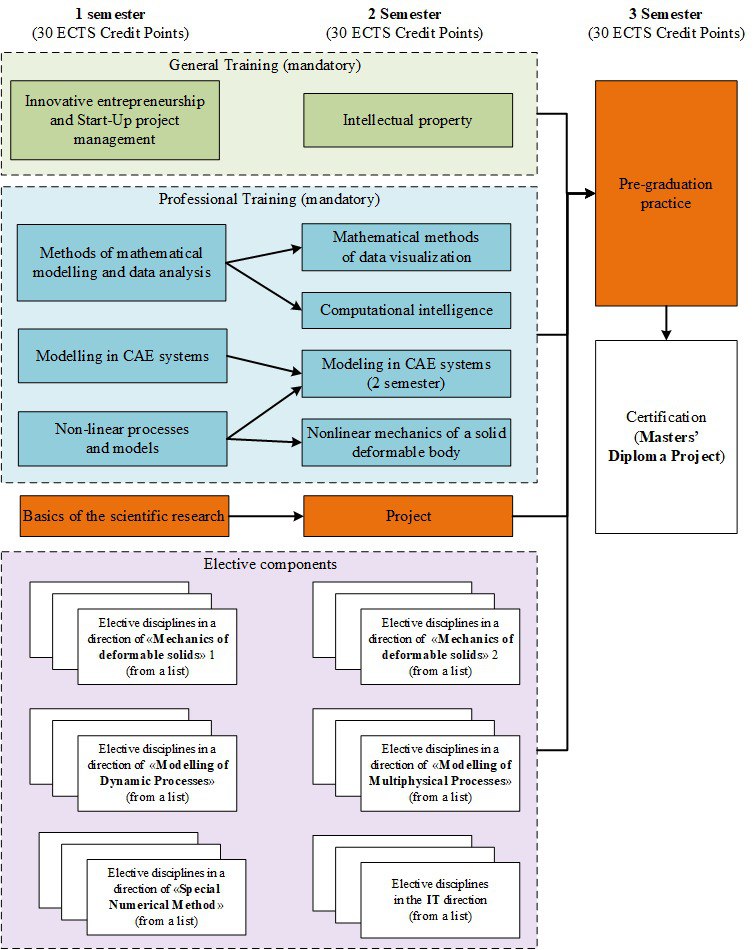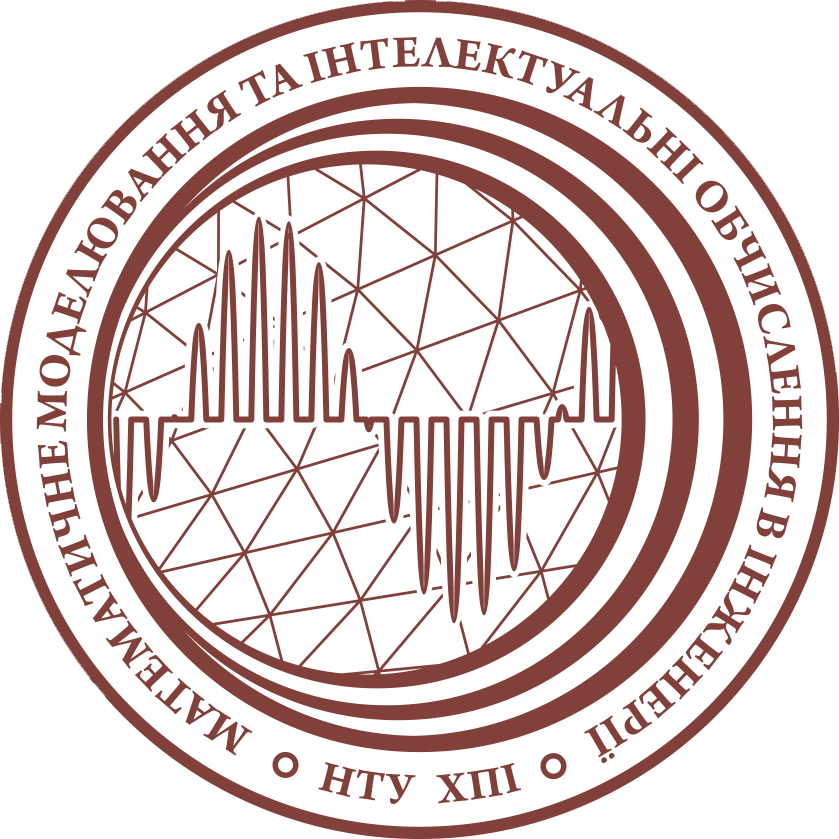Specialty F1 Applied Mathematics, educational program: “Computer and mathematical modeling” (master`s degree), in MME department (NTU “KhPI”), aims to train a specialist with specific knowledge in the field of applied mathematics and capable to perform mathematical and computer modelling of objects and processes occurring in them, conducting applied research of engineering problems in terms of solving them using traditional and intelligent computing methods.
The educational program and archive of EP`s is available on the website of the department of quality assurance of education of NTU “KhPI”
The educational program and archive of EP`s is available on the website of the department of quality assurance of education of NTU “KhPI”
CHARACTERISTICS OF THE EDUCATIONAL PROGRAM
Main focus of the study programme and specialisation: The educational programme is aimed at training specialists who have an in-depth understanding and high qualifications in the aspects of mathematical and computer modelling of objects, processes and phenomena of physical nature used for applied research in innovative engineering activities.
The programme focuses on developing the competences necessary to create, justify the choice and adapt to the correct application of complex, in particular nonlinear, mathematical models, as well as on acquiring professional knowledge and skills in developing, upgrading and configuring methods and algorithms for intelligent computing, in particular within the framework of data- driven approaches.
Features of the programme: The educational programme Computer and Mathematical Modelling is structured in such a way that it develops competencies in traditional approaches to computational modelling of complex phenomena and processes of various nature, as well as approaches to intelligent computer analysis, in particular data-driven approaches and machine learning methods.
The combination of these two competences, which together are aimed at carrying out applied mathematical research in engineering and information systems, provides a synergistic effect that provides the ability to interpret the results of modelling according to the subject area and integrate knowledge, in particular under conditions of uncertainty and incomplete information.
Other important features include:
1) the presence of a project-based learning form that conceptually implements the CDIO* approach, with students involved in individual and team applied projects;
2) the opportunity for academic mobility of students within the framework of active participation of the Institute and the graduating department in the German academic exchange programme, in particular in the L. Euler Scholarship programme (pre-degree internship at the Otto-von-Guericke University of Magdeburg, Magdeburg, Germany);
3) the presence of several educational components, in particular, “Modelling in CAE systems”, “FEM algorithms” and “Programming of modern numerical methods”, developed and implemented in cooperation with teachers of the Department of Continuum Mechanics, Rhine- Westphalian Technical University, Aachen, Germany, within the framework of the international programme of the German Academic Exchange Service (DAAD, project 57653616, 2022) entitled “Digital Ukraine: Ensuring Academic Excellence in a Crisis”;
4) a number of academic disciplines are taught in English;
5) the programme is adapted for the training of foreign students.
STRUCTURAL DIAGRAM OF EP

